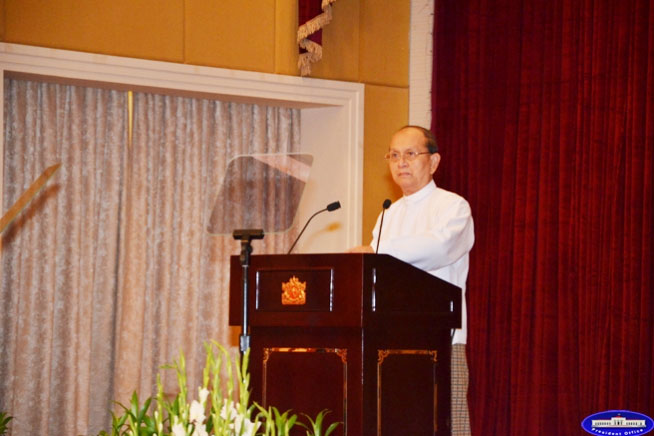President Thein Sein announced he would lead the reform process himself in the future because of the poor performance of the government in the last 30 months of his term.

At a meeting held at Presidential Palace on August 9, he said, “Action against officials including the Union Minister, Deputy Ministers, Director Generals and senior government officials were taken for their poor performance in reforms and administrative work, lack of transparency, neglecting people’s grievances, under performing their duties, and corruption. Additionally, senior officials of central governmental departments and local governments were punished with forced retirements and transfers to different positions.”
During the meeting, the President met with Central government Ministers, and Chief Ministers and Deputy Ministers of states and regions.
He said, “In the past, only the Planning Commission undertook reforms by consulting and assigning instructions to various departments of the government, but from now on I will focus on these myself by forming a separate reforms committee.”
“Some Ministers are monopolizing their authority in their Ministries. They do not coordinate with other Ministries and refuse to relinquish their power. They are still following the old system of central command and will not submit to devolution of their power and authority. Such Ministers and their Ministries should rectify their mindset for smooth running of their Ministries.” the President urged.
Moreover, the President has adopted a policy of devolution of central powers to the governments of states and regions. In the new system, the Union Ministries will not give direct command to states and regions’ governments. The local governments will execute reforms, manage and monitor it themselves.
The President added that he is working towards providing electricity, increasing production of export goods, addressing the needs of the poor and providing more employment opportunities.



